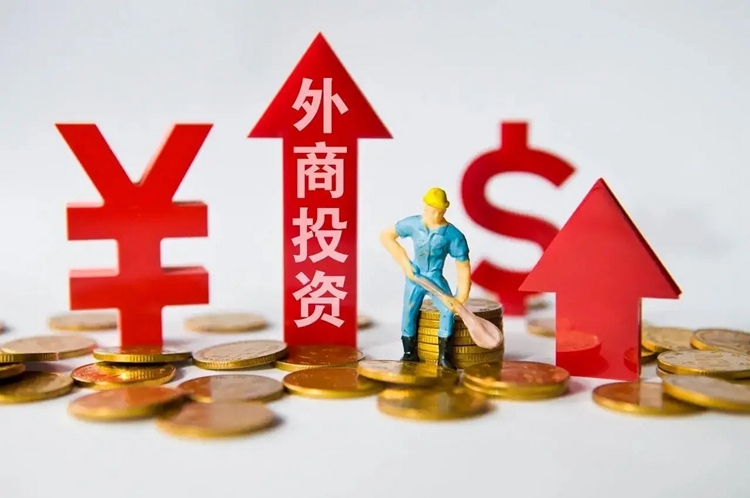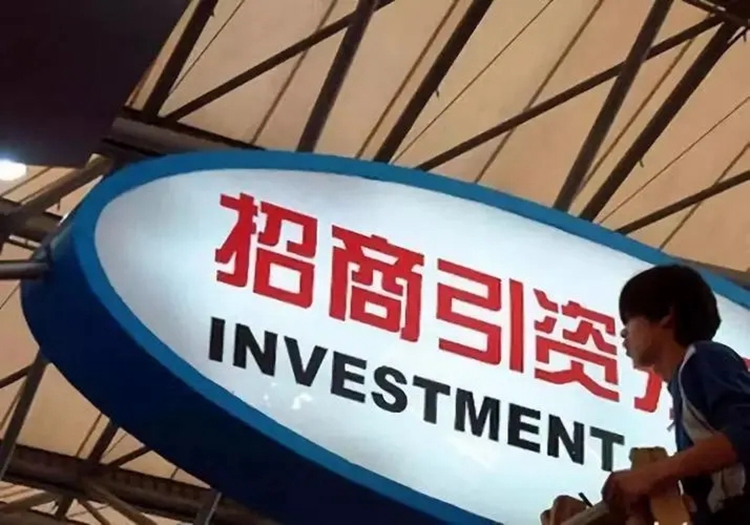A few days ago, the General Office of the State Council issued the "solid promotion of a high level of opening up to the outside world to attract and utilize foreign investment action plan" (hereinafter referred to as the "action plan").March 20, the State Council Information Office held a regular briefing on State Council policies, the relevant departments responsible for the introduction of the relevant situation.
Further broaden the space for foreign investment, optimize the business environment, and enhance the facilitation of cross-border flow of factors
"In recent years, the Chinese government has continued to open up to the outside world, launched a series of policy initiatives to stabilize foreign investment and optimize the foreign investment environment. The introduction of the Action Program once again demonstrates the great importance we attach to the work of attracting foreign investment." Wu Hao, secretary-general of the National Development and Reform Commission (NDRC), introduced the Action Program, which proposes a series of pragmatic measures in terms of expanding market access, unimpeded flow of innovative factors, and docking with international high-standard economic and trade rules.
Further broaden the space for foreign investment. The Action Program proposes to expand market access and raise the level of liberalization of foreign investment. A new version of the Negative List for Foreign Investment Access will be introduced, restrictions on foreign investment access will continue to be reduced, and access pilots will be conducted in areas of great concern to foreign enterprises, such as medical care and value-added telecommunications. Meanwhile, more qualified foreign-funded institutions will be supported to carry out business in areas such as banking and insurance and bond funds.

Further optimize the business environment. The Action Plan proposes to optimize the fair competition environment and provide good services to foreign-invested enterprises. It promotes the implementation of relevant policies to take effect, issues rules for fair competition review in the field of bidding and tendering, and strives to eliminate problems such as local protection and discrimination in ownership; introduces standards for government procurement of domestic products, and requires that products produced by domestic and foreign-funded enterprises that comply with the standards be treated the same and equally in government procurement activities. Improve the scientific level of administrative law enforcement, and correct irregular administrative law enforcement behavior in a timely manner.
Further enhance the level of facilitation of cross-border flow of factors. The Action Program proposes to smooth the flow of innovation factors and promote innovation cooperation between domestic and foreign-funded enterprises. In terms of business personnel exchanges, the validity of visa entry will be relaxed to two years for managerial and technical personnel of foreign-funded enterprises, as well as their accompanying spouses and minor children, and foreign talents will be facilitated to work, stop residing, and reside permanently in China. In terms of data flow, the Action Plan will promote the safe and orderly cross-border transfer of R&D, production and sales data of foreign-invested enterprises, and will formulate standards for data transfer in the Guangdong-Hong Kong-Macao Greater Bay Area, so as to realize the convenient flow of data within the Greater Bay Area.
Revision of the Catalog of Industries Encouraging Foreign Investment has been launched
The Catalogue of Industries Encouraging Foreign Investment is a foreign investment promotion policy clarified by the Foreign Investment Law and its implementing regulations, and the current one is the 2022 version. This year's Government Work Report and Action Program both propose to expand the Catalog of Industries Encouraging Foreign Investment. Huazhong, head of the National Development and Reform Commission's Department of Utilization of Foreign Capital and Overseas Investment, told reporters that it has launched the revision of the catalog of industries encouraging foreign investment in conjunction with relevant departments, "The revision of the 'National Catalog of Industries Encouraging Foreign Investment' will continue to take the manufacturing industry as a key direction for encouraging foreign investment, and at the same time Promote the integrated development of service industry and manufacturing industry, and increase the support for advanced manufacturing industry, modern service industry, high and new technology, energy saving and environmental protection. The revision of the 'Catalogue of Advantageous Industries for Foreign Investment in Central and Western Regions' will fully tap into the resource endowments and industrial conditions of each locality, and increase support for basic manufacturing, applicable technologies, and people's livelihood and consumption, etc., according to local conditions."
In 2023, the State Council issued the Opinions on Further Optimizing the Foreign Investment Environment and Strengthening Efforts to Attract Foreign Investment, or the 24 Policy Measures to Stabilize Foreign Investment. Zhu Bing, director of the Foreign Investment Management Department of the Ministry of Commerce, introduced that of the 59 initiatives proposed in the 24 policy measures to stabilize foreign investment, 10 have been completed, such as the State Intellectual Property Office and the Ministry of Justice, which issued the Opinions on Strengthening Administrative Adjudication of Patent Infringement Disputes in the New Era, etc.; 28 have made stage-by-stage progress; and 21 are being continuously promoted. "As a next step, we will continue to promote the initiatives in conjunction with relevant departments to accelerate the implementation of the initiatives, continue to carry out the assessment of the implementation of foreign investment policies, and inform foreign-funded enterprises of the progress in a timely manner."

The Mainland-Hong Kong interest rate swap market interconnection and cooperation, or "Swap Connect", is an important initiative to open up China's financial market in recent years. "Since its official launch in May last year, the 'Swap Pass' has been running smoothly, which is conducive to providing foreign investors with a more convenient channel for interest rate risk management." Zhou Yu, head of the People's Bank of China's international department, said it will continue to improve its financial regulatory capacity, and under the premise of maintaining good financial security and stability, it will continue to strengthen the interconnection between the domestic and foreign financial markets, attracting more foreign capital and long-term capital to conduct business and take root in China.
Jia Tongbin, head of the Foreigner Management Department of the National Immigration Administration, said that since 2023, in order to attract and promote foreigners to China, continue to optimize the policy and measures for foreigners to come to China, immigration and emigration government services, and actively provide visa facilitation for international business people, and the next step will be to proactively collaborate with the relevant competent departments, and continue to deepen the reform of the immigration management services and policy and system innovation.
From the perspective of future trends, China's advantages in attracting foreign investment are remarkable and the space is vast.
Since last year, the scale of China's utilization of foreign investment has declined. In response to this issue, Wu Hao made an analysis.
From a global perspective, global cross-border investment has risen and fallen is the norm. In recent years, the global economic situation has become more complex, cross-border investment fluctuations increased. 2021, the relevant indicators rose to a higher scale after a sustained decline. In January this year, the United Nations Conference on Trade and Development published "Global Investment Trends Observatory" shows that after deducting the factor of transshipment place of multinational enterprises' investment, the global cross-border investment in 2023 declined by 18%. In such an environment, China's attraction of foreign investment scale has maintained a better trend.
Extending the time scale, China's actual utilization of foreign capital in 2023 is still at a historically high level. From the perspective of "quantity", the actual utilized FDI exceeded 1.1 trillion yuan, the third highest in history; from the perspective of "quality", the structure of utilized FDI continued to be optimized, with the high-tech industry attracting 37.4% of the total, an increase of 1.3 percentage points compared with 2022, and the manufacturing industry attracting 27.3% of the total. The share of attracted capital in the manufacturing sector reached 27.9%, an increase of 1.6 percentage points.

